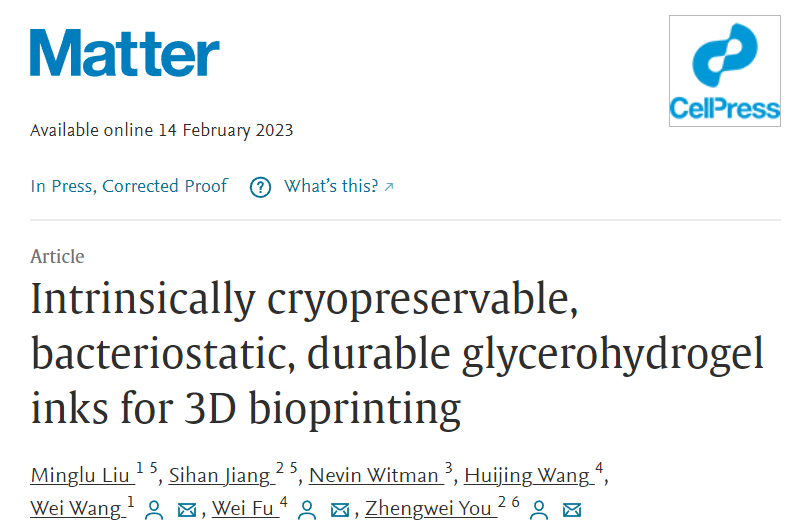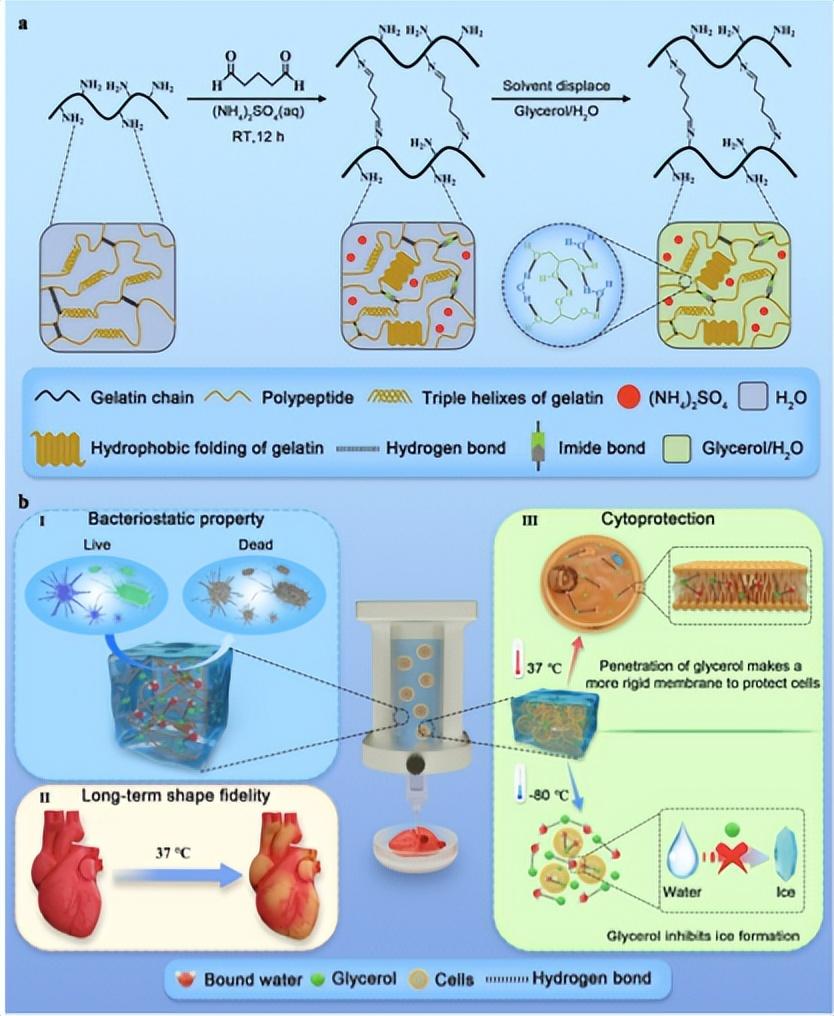DHU Prof. You Zhengwei's team, in collaboration with the team headed by Fu Wei and WangWei from the National Children's Medical Center (Shanghai) and Shanghai Children's Medical Center affiliated to Shanghai Jiao Tong University School of Medicine, published an online article entitled "Intrinsically Cryopreservable, Bacteriostatic, Durable Glycerohydrogel Inks for 3D Bioprinting" on Matter, a peer-reviewed journal.

The article is the first to advance theapproach of using glycerol to regulate the "free water" state and synthesize multifunctional glycerohydrogel bioinks. The limited amount of "free water" in the glycerolhydrogels is not conducive to bacterial reproduction and thus can significantly restrain the growth of E. coli and molds. The 3D-printed glycerolhydrogel scaffolds can also maintain shape fidelity by inhibiting "water" evaporation, and the cells in glycerolhydrogels are more active than those in ordinary hydrogels. In addition, crystallization is suppressed by the bounding of most of the hydrogen in glycerolhydrogels, thus the printed tissues can be cryopreserved without cryoprotectants. The glycerohydrogel bioinks could be applied to in vitro bioprinting of multiple tissues and organs. Due to its antibacterial, morphology-maintaining, and cell-protective properties, it can also contribute to in vivo cell therapy to increase the cell survival rate.



